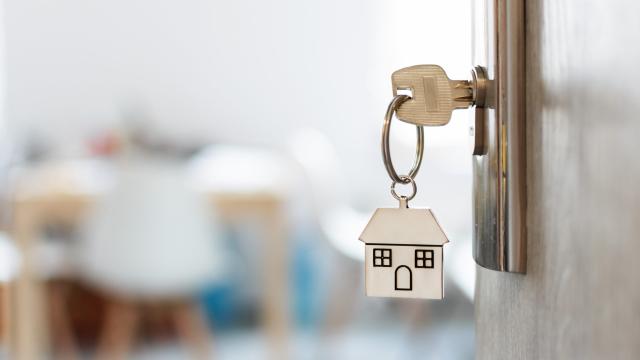Moving to a new apartment or home is an exciting time. You’ve been hunting for months (or even years) and have finally found the perfect place to settle down. But before you start nesting, there are a few housekeeping matters to take care of. Most people know to change the locks or locate the breakers in a new place. but you should also consider other important introductory measures, especially if you plan on sticking around for a while.
Change the toilet seat
Unless you are moving in to a place that is newly constructed or newly remodeled, your toilet seat has definitely been used. At minimum, give it a good cleaning. But it’s also no great investment to head to the hardware store to pick up a new one before celebrating your new digs. Often even when kept clean, toilet seats can pick up unsightly hard water stains, so you might as well give yourself a fresh start.
Check the air filters
If you are a moving into a house — or an apartment in which they are accessible — check to see that the home ventilation system’s air filters have been properly installed. If the filters look like they haven’t been changed, replace them. Your landlord, if you have one, will let you know if this is going to be your responsibility going forward. Generally, air filters should be changed every three months at minimum.
Document everything
For those moving into an apartment, the first thing you want to do is create your own condition report, if your landlord hasn’t asked you to do so already. Note any damages or alterations made to the apartment before you moved in. Provide a detailed description, and snap some pictures. You don’t want to get blamed for any problems created by the previous owners, and documenting these issues now will save you a lot of hassle (and maybe even your security deposit) when you move out.
Make an emergency plan
An emergency plan, whether you are in a house or an apartment, is essential. If anything should happen, you will need to know which exits or stairwells are safe to use and where to go once you are out of the house. Designate a rendezvous point so everyone in your household knows where to meet up.
Real estate agent Sarah Darrow advises that an emergency plan should also include picking up supplies. “Order equipment such as an escape ladder, fire extinguisher, and smoke/Co2 detectors,” she advises. Renters should also immediately check the batteries in all existing smoke detectors and carbon monoxide detectors.
Additional, Darrow says, it’s a good idea to, “call the fire department in case they need gate codes or other special instructions during an emergency.”
Get a toolbox
I love handling DIY jobs in my apartment, but replacing sink taps or doorknobs require a good set of tools to get the job done right — and you never know when you may need to fix a few things on your own (especially if your building’s super or management company is slow to act on minor repairs). So pick up some tools — I picked up a small kit with essentials like screwdrivers, nails, and Allan keys, and also grabbed an electric drill and drill bit set. Don’t worry about buying expensive, high-end stuff if you are only worried about handling the simple stuff; you can spend about $US40 ($52) and get everything you need.
Get to know the rules and observe the lay of the land
If your new home is governed by a homeowners’ association or a list of building rules, make a list of all the ones you’ll need to follow, from how often you’ll have to cut the grass to where and how you’ll dispose of trash. Note the dates and times for garbage and recycling pick-up, street sweeping, and track down where deliveries go in your building.
Mark the locations of water shut-offs and gas lines, and locate the breaker box so you’ll know where to go when you first discover you can’t run the microwave and the coffeemaker at the same time. Darrow reminds renters and homeowners to familiarise themselves with city ordinances, too, including parking regulations and pet registration procedures. And make sure to locate your local first responders: you’ll want to know where the closest hospitals, police station, and other emergency services are located, and the fastest ways to get to them if disaster strikes.

Leave a Reply
You must be logged in to post a comment.